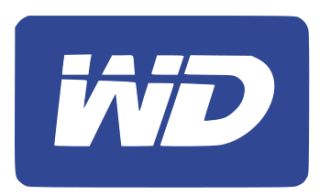 Beancounters from Forrester believe that the future of cloud computing belongs to Amazon and Google.
Beancounters from Forrester believe that the future of cloud computing belongs to Amazon and Google.
Analyst John Rymer says “public cloud services,” which is where the future lies and even Dell’s EMC purchase can’t change that.
Amazon and Google now offer their own infrastructure to the rest of the world as cloud computing services. This will be bad news for Microsoft which is bigger than Google at the moment.
Forrester’s report, which draws on interviews with vendors and customers across the market, looks exclusively at “public cloud services” rather than private clouds.
Rymer and Forrester now call the public cloud a “hyper-growth” market. Its new report predicts that this market will grow to $191 billion by 2020. That’s 20 percent more than they predicted in their previous report, back in 2011.
“The adoption among cloud among enterprises, which is really where the money is, has really picked up steam. It’s a big shift. The cloud has arrived. It’s inevitable.”
The report encompasses a wide range of services, like Amazon’s EC2, which serves up virtual machines where you can run practically any software you want and Microsoft Office 365, a suite of pre-built and configured software applications you can tap into via the ‘net.
It said that companies like Amazon and Microsoft and Google continue to expand across all these areas. Amazon just introduced a sweeping array of new services last week.
According to the report, “cloud platform services” like Amazon EC2, where you can build and run your own software, will be a $44 billion market by 2020. Meanwhile, back-end business services will reach $14 billion, and cloud software applications will hit $131 billion.
“A lot of businesses are now saying: ‘I want to move my operational application, back office applications, into public clouds. That’s a big deal. In the past, so many people said: ‘I’m never going there.’ Now they’re actually working at it.”
The public cloud won’t take over the whole IT market, Rymer says, but this is where the big growth lies. According to Rhymer, software-as-a-service offerings such as Office 365 are growing the quickest at the moment.
The biggest winner here will likely be Amazon because it has a massive customer base and they’re been at it longer.
Amazon has revealed that its cloud operation is now a $4.6 billion business, and the company expects it to grow to $6.23 billion by the end of the year. The next-biggest player is Microsoft. In April, Redmond said it’s on track to reach $6.3 billion in revenue this year, including sales of its Office 365 and its Dynamics customer relationship management service. Google, in many respects, has a technical lead on Amazon and Microsoft, but it was slower to market. IBM, with its acquisition of a company called SoftLayer is also a presence.
Services from Google and IBM may not grow as quickly as Amazon’s. But they will grow. It’s where the world is moving, the report said.
 Fruity cargo cult Apple has admitted that it is burning its resellers and might lose a few more after it beefs up its direct sales unit.
Fruity cargo cult Apple has admitted that it is burning its resellers and might lose a few more after it beefs up its direct sales unit.

















